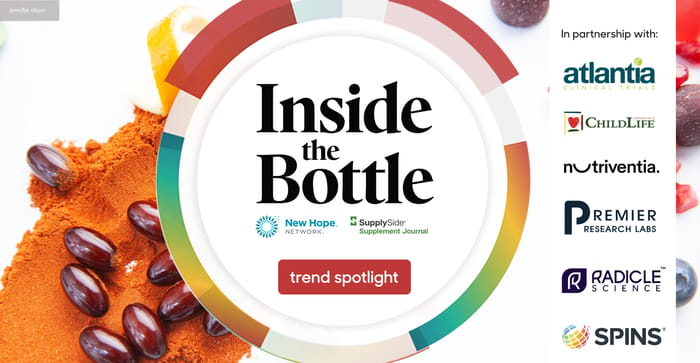April 6, 2016

Last summer, KeHE’s Scott Silverman took a hard look at the effectiveness of promotions in the natural channel versus conventional. What he discovered was striking: Conventional chains were offering less of a discount on natural and organic products than many natural stores—yet they were moving significantly more volume. What are these supermarkets doing that independents are not? Silverman and two other experts offer their best ideas for how you can step up your game and make promotions more profitable.
Distributor
Size up the competition.
First and foremost, it’s imperative to gain an understanding of your closest competitive retailers’ everyday pricing: Are they everyday low price? Do they do high-low pricing? Also spend time learning about their promotional strategies: Do they promote deeply? Frequently? What vehicles do they use? When do they execute off-fixture and secondary displays?  Then you want to leverage these insights to develop your own strategy and tactics and work with your distributor partner on garnering deals from brands.
Then you want to leverage these insights to develop your own strategy and tactics and work with your distributor partner on garnering deals from brands.
Think seasonally.
You should always be mindful of category seasonality. Whether it’s Thanksgiving or summer BBQ season or back-to-school, the goal is to offer tangible solutions to consumers when they are most likely going to buy a specific set of products. You don’t need to discount deeply, but you can leverage seasonality by setting up bountiful, eye-catching displays and endcaps.
Represent all departments in promo materials.
Use your promotional flier or tagging program to drive traffic to each and every department. You want these to offer values—and the perception of values—to your current customers as well as to potential future shoppers. And don’t forget digital. These days, natural products retailers absolutely need a strong digital promo presence—online coupons, fliers, clear communications about deals. If you haven’t yet figured out the digital component, you really need to in order to stay competitive.
-Scott Silverman, vice president of growth solutions and private brands at KeHE Distributors in Boulder, Colorado
Retailer
Create impactful, story-driven displays.
Endcaps should look plentiful and interesting from all sides so that customers coming from any angle will turn their heads and say, “Wow!” Displays also need to tell products’ stories—shoppers just love reading them. In January, we put tart cherry juice on promo and posted signs explaining that it’s high in antioxidants and other nutrients that keep us healthy during winter. We also tell the stories of our 110 local vendors with one prominent display each month and a few tied-in endcaps. This is very important because not many conventional stores carry these products. 
Change displays often.
Try to shuffle up displays at least every few weeks. If you’re going to leave an endcap up for a month—and I understand why some retailers do—at least change the look and feel of it. Rearrange the items or make the prominent product a different one than the week before. That way, shoppers will actually look at the display, rather than assuming they’ve seen it already or that a certain item is “always” on sale so there’s no urgency to buy.
Don’t put unrelated items on endcaps.
I see this all the time, and it doesn’t work. Usually, it’s because a product had been on promo but didn’t sell out. So instead of putting the remaining stock in the back room, a retailer just extends the sale and leaves it on the endcap next to the new sales item—even if the two have nothing to do with each other. Customers need to “get” what you’re trying to say or they’ll keep walking. Grouping cereal with paper towels will leave them baffled, sabotaging the sales potential of both.
–Ron Sjoquist, general manager of Good Harvest Market in Pewaukee, Wisconsin
Promotions manager
Make price points enticing.
Don’t get so hung up on maintaining certain margins that you’re not pricing sale items in an attractive way. Let’s say your normal margin on a product is 35 percent. When a distributor or broker puts it on promo and you buy it for less, you’ll try to price it accordingly to keep a similar margin. But if the math works out that the retail price would be something like $3.09, that’s not an appealing offer. If you can stretch the margin a little lower than 35 percent and make it two for $6, you’ll have a better shot at enticing consumers.
Don’t sweat skipping a promo.
There might be some items that you just can’t get close enough to your competitors’ prices. In extreme cases, your promo might be another store’s everyday price. Don’t worry too much about these products. You can try making the case to your broker that you�’d like to get to a certain price in order to compete, and he or she may be able to work with you. But if not, it’s OK to let some promotions go and focus instead on those that’ll entice shoppers and benefit you.
Ramp up sampling.
Sampling has always been an important, effective promo tool. But it’s especially crucial for natural products stores today, as more and more consumers are drifting over from conventional stores. Unlike most supermarkets, you offer a whole world of products that crossover consumers have never seen, and you can’t expect them to fill their carts with items they’ve never tried. But the more they sample and enjoy, the greater your odds of swaying them into becoming regular natural-channel shoppers.
–Dina Hemminger, promotions manager at the Independent Natural Food Retailers Association in St. Paul, Minnesota
About the Author
You May Also Like
.png?width=700&auto=webp&quality=80&disable=upscale)



